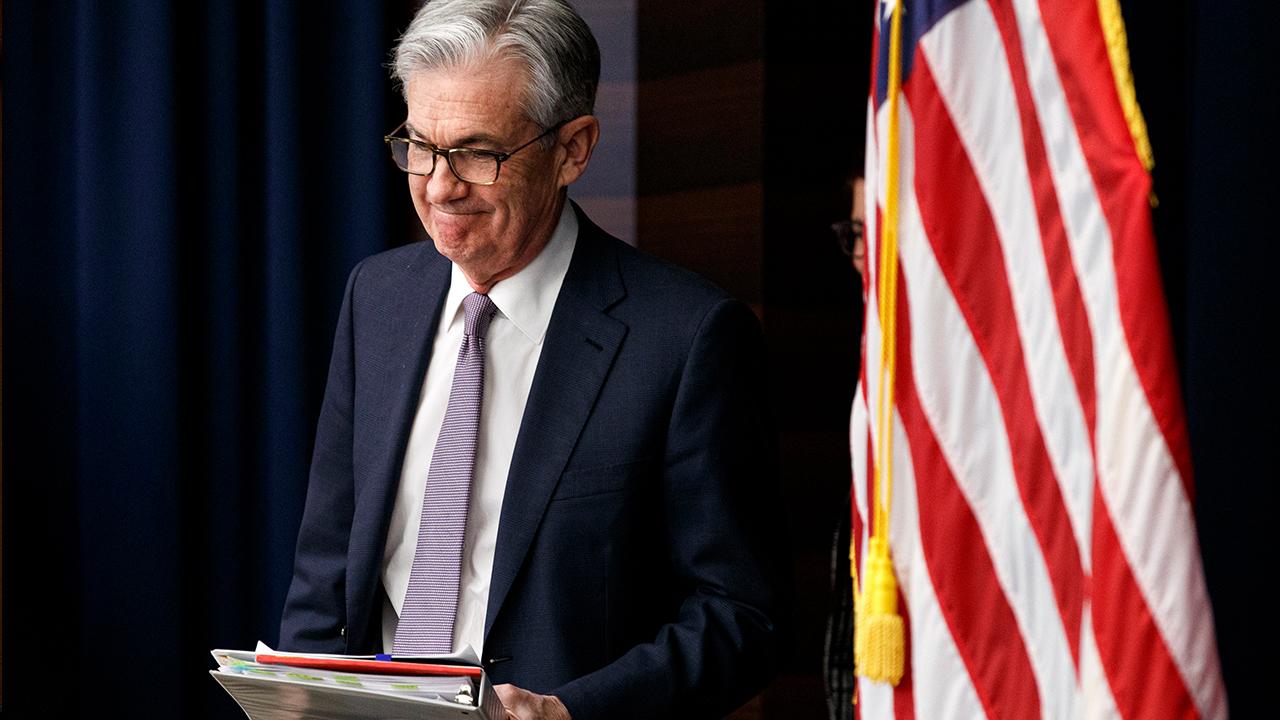Fed economist argues negative interest rates needed to boost US economic recovery
Sending rates into negative territory would ensure the U.S. sees a sharp and broad economic recovery, the economist argued
The Federal Reserve is all but guaranteed to keep interest rates at near-zero during its two-day meeting this week, but according to one central bank economist, policymakers should consider deploying negative rates.
FED'S POWELL WARNS VIRUS RECOVERY COULD STRETCH THROUGH 2021
Sending rates into negative territory would ensure the U.S. sees a sharp and broad economic recovery, or what's often referred to as a V-shaped recovery, according to a recent paper published by St. Louis Fed economist Yi Wen and Brian Reinbold, a research associate.
"A combination of aggressive fiscal and monetary policies is necessary for the U.S. to achieve a V-shaped recovery in the level of real GDP," they wrote. "Aggressive policy means that the U.S. will need to consider negative interest rates and aggressive government spending, such as spending on infrastructure."
Wen and Reinbold argued that negative interest rates would have to stay in place even when the crisis ends to provide a further boost to the economy. But, they said, aggressive monetary policy may be ineffective without aggressive fiscal measures.
FED'S POWELL SAYS US ECONOMY MAY NEED MORE POLICY HELP TO AVOID 'PROLONGED' RECESSION
Although the U.S. has always had positive interest rates, other countries have experimented with sending rates into negative territory. So far, five central banks have interest rates set below zero, including Japan, Sweden, Denmark, Switzerland and the European Central Bank.
The benchmark federal funds rate is at a range between 0 percent and 0.25 percent, after the Fed cut it during two emergency sessions earlier this year. Chairman Jerome Powell has pledged that interest rates will remain near-zero until the U.S. weathers the outbreak of the virus and subsequent downturn.
The Fed responded to the pandemic by taking a range of extraordinary actions to support the economy on top of cutting rates, including purchasing an unlimited amount of Treasurys (a practice known as quantitative easing) and launching crisis-era lending facilities to ensure that credit flows to households and businesses. It has also said it will buy corporate bonds and lend to states and cities.
POWELL RULES OUT NEGATIVE INTEREST RATES, DESPITE TRUMP PRESSURE
In the past eight weeks, the Fed has pumped nearly $2.9 trillion into the economy, and its balance sheet has expanded to $7.1 trillion, a record.
Policymakers are not considering negative interest rates, Powell said; they will instead rely on their "tried and true" toolkit: asset purchases and forward guidance.
"It’s an unsettled area. I know that there are fans of the policy, but for now, it’s not something we’re considering," Powell said. "We think we have a good toolkit, and that’s the one we’ll be using."




















